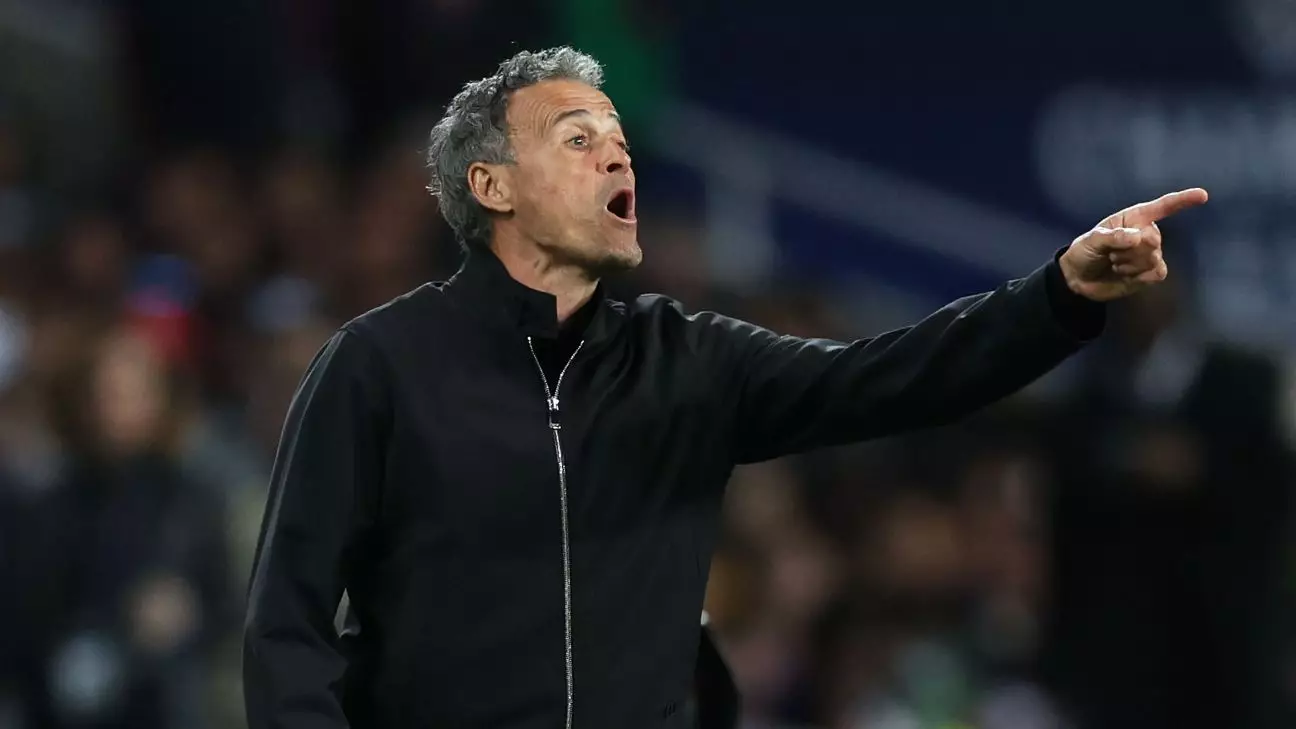In the realm of modern football, the tactical evolution has sparked intense debates among coaches, players, and fans. A recent documentary featuring Paris Saint-Germain’s manager Luis Enrique sheds light on his candid opinions regarding the current state of play at Barcelona under Xavi Hernández. This article delves deeper into Enrique’s criticisms, particularly his assertion that Barcelona’s style of play mirrors that of teams like Eibar, and explores the implications of these views for both clubs and their strategies moving forward.
Enrique’s Assessment of Barcelona
Luis Enrique’s remarks on Barcelona, as outlined in the documentary, raise significant questions about the team’s identity and its approach to the game. He claimed, “Barça played long ball football like Eibar,” suggesting a significant deviation from the traditional possession-based philosophy synonymous with the Catalan giants. This assertion is emblematic of a much larger conversation about how tactical styles have shifted in recent years. Barcelona, once hailed for their intricate passing and movement, seem to have adopted a more pragmatic approach under Xavi, one that veers towards physicality rather than finesse.
Enrique’s perspective is undoubtedly provocative, particularly given his history with the club, where he guided them to a treble in the 2014-15 season. His critique, citing instances such as goalkeeper Marc-André ter Stegen’s record for long passes, urges fans and analysts alike to reconsider the current trajectory of Barcelona’s footballing philosophy. Is it enough for a club of Barcelona’s stature to adopt a long-ball strategy, especially against teams renowned for their attacking prowess?
Tactical evolutions in football often reflect broader changes within the sport, influenced by factors such as player capabilities, coaching methodologies, and even pressing societal trends. As Enrique himself noted, Barcelona is not the dominant force it once was—a reality that highlights a crisis of identity. The modern football landscape demands adaptability and tactical flexibility. While long balls may serve as a strategy in certain scenarios, they cannot become the hallmark of a team expecting to cultivate a legacy synonymous with excellence.
Xavi’s Barcelona presents a juxtaposition of ideals—an attempt to maintain the club’s core values while adapting to a rapidly changing competitive landscape. It raises an essential question: how do traditional giants remain relevant without straying too far from their foundational principles? This dilemma is pertinent not just for Barcelona but for any elite club facing the dual pressures of performance and expectation.
In the documentary, Enrique’s emphasis on leadership, particularly regarding Kylian Mbappé, reflects the necessity of a strong, influential figure in the locker room. His insistence on the French forward adopting a pressing role underscores the importance of collective effort in achieving team goals. Football is not merely about individual brilliance; it is about collaboration and shared responsibilities.
Enrique’s statement that “Kylian is the cornerstone of the project” speaks volumes about contemporary managerial philosophy, where nurturing talent extends beyond technical skills to encompass leadership qualities. As players like Mbappé transition between positions within a team, their roles and responsibilities must evolve accordingly. This evolution necessitates a careful balance of both attacking and defensive duties, challenging players to think beyond their immediate contributions.
As both Paris Saint-Germain and Barcelona navigate their respective challenges, the insights provided by Luis Enrique in the documentary serve as vital touchpoints in understanding modern football’s complexities. While PSG emerged victorious in their Champions League tie against Barcelona, their subsequent elimination by Borussia Dortmund highlighted their vulnerabilities; a reminder that achieving success historically depends on more than individual matches.
For Barcelona, Enrique’s criticisms serve as a wake-up call. The team must confront the reality of its tactical choices while seeking to instill a new identity that pays homage to its storied past without falling prey to outdated methodologies.
Ultimately, the dynamic between legacy, evolution, and tactical proficiency will dictate the trajectories of both clubs. As they strive to reclaim their positions at the top of European football, the dialogue initiated by Enrique’s candid observations may well shape strategies moving forward, reinforcing the notion that in football, the only constant is change.

Leave a Reply